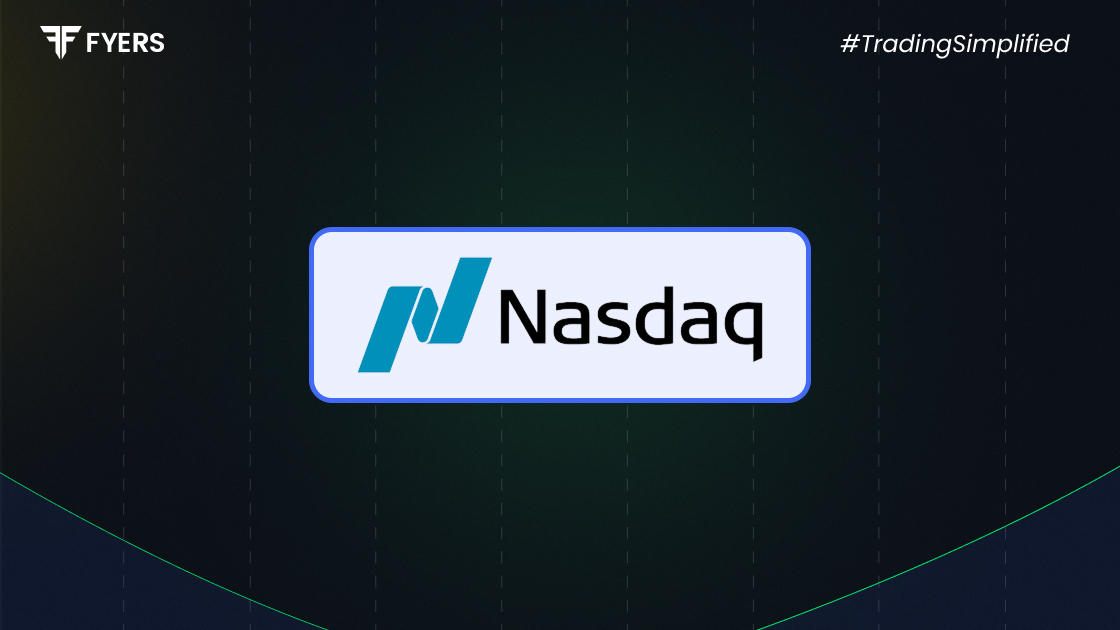

 30 Aug, 2025
30 Aug, 2025
 4 mins read
4 mins read

For investors seeking exposure to global innovation, the NASDAQ index offers a gateway to some of the world’s most dynamic companies. From Apple and Amazon to Tesla and Meta, NASDAQ is home to tech giants and growth leaders.
NASDAQ stands for the National Association of Securities Dealers Automated Quotations. It’s a fully electronic stock exchange where shares of publicly listed companies are traded digitally without a physical trading floor.
Known for its focus on technology and innovation, NASDAQ is the second-largest stock exchange globally by market capitalisation. It’s especially popular among fast-growing firms in sectors like software, semiconductors, electric vehicles, and biotech.
The NASDAQ Composite Index tracks over 3,000 companies listed on the exchange, while the NASDAQ-100 focuses on the top 100 non-financial firms, offering a snapshot of tech-driven market performance.
The history of NASDAQ reflects its pioneering role in modern finance:
1971: NASDAQ begins operations as the world’s first electronic stock exchange
1985: Launch of the NASDAQ-100 Index
2006: Becomes a fully licensed securities exchange
2007: Merges with OMX, expanding its global footprint
Over the decades, NASDAQ has evolved into a hub for innovation, attracting companies that shape the future of technology and consumer behaviour.
Understanding how NASDAQ works is key to navigating its fast-paced environment:
Digital Trading: NASDAQ operates entirely online, using electronic communication networks (ECNs) and market makers to match buy and sell orders
Market Makers: These firms provide liquidity by continuously quoting prices for buying and selling shares
Three-Tier Structure:
Global Select Market: Largest, most actively traded companies
Global Market: Mid-sized firms with solid fundamentals
Capital Market: Smaller companies with growth potential
This structure ensures that businesses of all sizes can list and scale on the platform.
Understanding the difference between NASDAQ and NYSE helps investors choose the right platform:
|
Feature |
NASDAQ |
NYSE |
|---|---|---|
|
Trading model |
Fully electronic |
Floor + electronic hybrid |
|
Typical listings |
Tech and growth firms |
Established, diverse firms |
|
Listing fees |
Generally lower |
Typically higher |
|
Volatility |
More volatile |
Comparatively stable |
|
Market cap |
Second largest |
Largest globally |
While NASDAQ is ideal for innovation-focused investing, NYSE offers exposure to legacy industries and blue-chip stability.
Here are the key benefits of investing in NASDAQ:
Access to Global Tech Leaders: Invest in companies shaping the digital economy
High Growth Potential: Many NASDAQ firms are known for rapid expansion
International Diversification: Reduces reliance on domestic markets
High Liquidity: Shares are easy to buy and sell
Efficient Execution: Electronic trading ensures speed and transparency
Note: Tech-driven growth also brings higher volatility. Assess your risk appetite before investing.
NASDAQ represents the cutting edge of global investing. For Indian investors, it offers a chance to diversify internationally and participate in the success of world-leading technology firms. Whether through direct stock purchases or mutual funds, investing in NASDAQ can be a smart move if done with proper research, compliance, and risk management.
NASDAQ stands for the National Association of Securities Dealers Automated Quotations. It’s a digital stock exchange focused on growth and technology-driven companies.
NASDAQ operates from 9:30 AM to 4:00 PM Eastern Time. In IST, this translates to 7:00 PM to 1:30 AM, or 6:00 PM to 12:30 AM during Daylight Saving Time.
Yes. Indian investors can invest via international brokers, Indian platforms with global access, or mutual funds and ETFs that include NASDAQ-listed stocks. Always follow RBI and FEMA guidelines and be aware of currency and tax implications.
Calculate your Net P&L after deducting all the charges like Tax, Brokerage, etc.
Find your required margin.
Calculate the average price you paid for a stock and determine your total cost.
Estimate your investment growth. Calculate potential returns on one-time investments.
Forecast your investment returns. Understand potential growth with regular contributions.